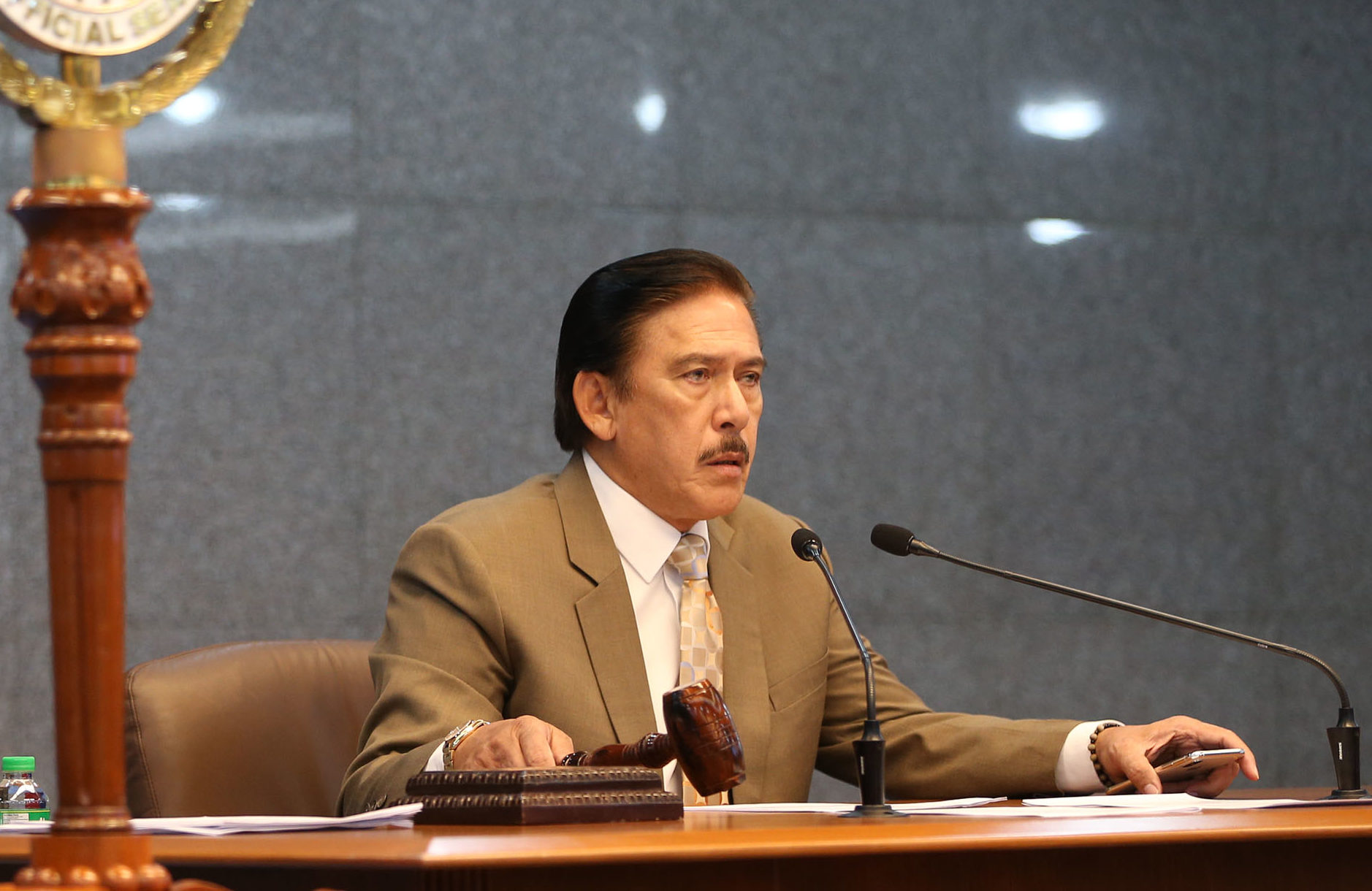
Senate President Vicente Sotto at the Senate Session. EDWIN BACASMAS
The Duterte administration’s second tax reform package got moving in the Senate on Thursday despite a lukewarm welcome from legislators, after Senate President Vicente Sotto III filed his version with an assertion that it would not have “any inflationary effects.”
Senate Bill No. 1906, or the proposed Corporate Income Tax and Incentives Reform Act, seeks to rationalize the tax perks given to businesses and reduce corporate income tax rates from 30 percent to 25 percent.
It also seeks to remove exemptions granted to government-owned and -controlled corporations; proprietary educational institutions and hospitals; income of foreign corporations from foreign currency transactions; regional or area headquarters of multinational companies; regional operating headquarters; nonresident cinematographic film owners, lessor or distributor; and owner or lessor of vessels, aircraft, machineries and other equipment.
In his explanatory note to the bill, Sotto said 654 firms had been enjoying tax incentives from the government for the past two to three decades.
“Thus, it is high time to have a tax incentives system that is performance-based, targeted, transparent and time-bound in order to ensure that the Filipino will gain from every peso that the government gives to the firms registered in the investment promotion agencies,” he said.
Revenue neutral
The measure would not affect inflation because it was revenue-neutral and would benefit micro, small and medium enterprises (MSMEs), he said.
“Considering that this is a revenue-neutral tax measure, it will not have any inflationary effects but it may one way or another provide support to some 90,000-plus MSMEs to be covered by this act,” he said.
He called on his colleagues to support the bill.
Earlier this week, Finance Undersecretary Karl Chua allayed concerns that the removal of fiscal incentives of some investors would make them pack up and leave many Filipinos jobless.